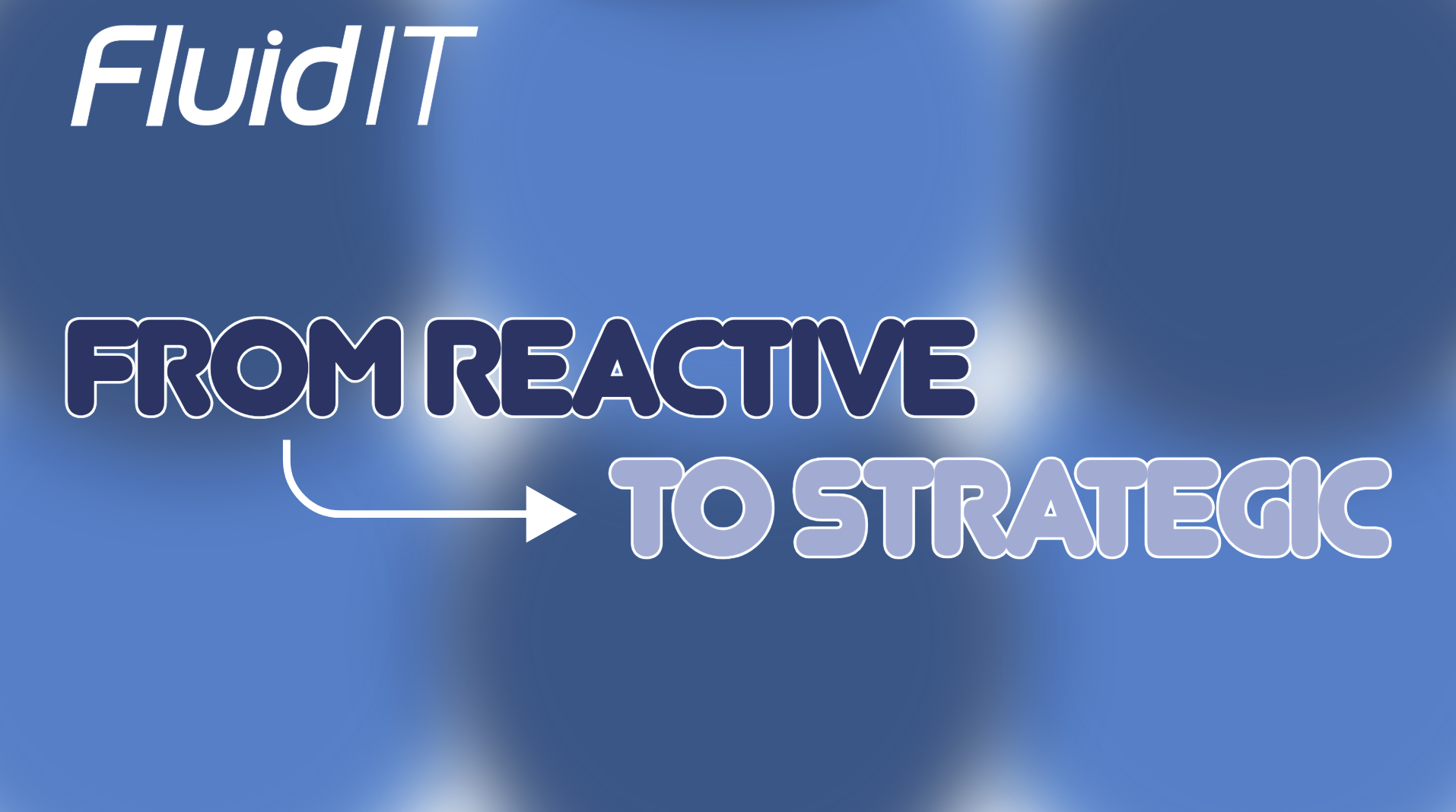Fluid IT Recognized on CRN’s 2023 MSP 500 List
CRN®, a brand of The Channel Company, has named Fluid IT to its Managed Service Provider (MSP) 500 list in the Pioneer 250 category for 2023.

Technology services have been around since the beginning of computing, although in more informal and smaller form factors. As the technology evolved, its adoption by businesses increased, bringing the need to support the deployed technology solutions.
Most companies installed technology within their offices early and supported it using full-time employees. Technology capabilities increased exponentially, and with it, the complexity of understanding and supporting it grew too. As technology expanded, it became necessary to have experts in functional areas, such as infrastructure, security, applications, and the cloud.
Managing the day-to-day technology operations, processes, and related costs became a significant burden requiring the expertise of managed service providers. In addition, businesses need to focus on what they do best within their specific line of business. Time spent on IT was not a value add.
From my perspective, over the past 30 years in IT, I have seen the evolution from my days working at EDS, providing IT outsourcing to Fortune 500 companies. A luxury the small- to mid-market business (SMB) could not afford. SMBs' only option was to use ‘the brother-in-law’ or ‘one guy and a truck’ to provide reactive break-fix using a call me when you need me model.
Fortune 500 could access all the IT services and subject matter experts they needed, while SMBs could not access nor afford such services. As with most advancements, SMB typically lags enterprise companies by 18 to 24 months. Access to quality IT services was no exception.
It wasn’t until the late 90s and early 00’s that IT services were catching up and forming more mature models to support SMBs. Early on, these IT service companies, like Fluid, were called IT support vendors or consultants.
Some proactive services were available through rudimentary support plans. The focus was on providing more proactive services to help IT before things broke. This was not an easy sell to SMB companies who have to watch every penny. We asked them to spend monthly money on IT for things that haven't happened yet. Many would not commit until some significant pain point occurred like a server crash.
Many SMBs viewed IT plans as insurance rather than a genuine business need, even though technology continued to evolve rapidly with:
As the width and depth of the technology universe increased, so did the need for more specialized and skilled technical resources. A typical SMB could no longer hire one IT staff and meet all the necessities. A team of 5 to 10 experts was needed, which made no financial sense for any SMB to try to hire and retain.
At the same time, the financial attractiveness of a monthly recurring revenue model was taking the world by storm. Everyone wanted the predictable revenue streams and profits a recurring model provides. This wasn’t just in technology but across the entire services sector. A managed service provider could be,
Any service that makes sense to outsource to experts in a particular field is a managed service. Fluid IT is a technology-managed services provider (MSP).

What makes a Managed Service Provider different today from the early IT service providers is the expertise, depth, and breadth of services offered. Although some MSPs specialize in one technology area, such as cloud services, and focus on a single vertical, like healthcare, it is more common for MSPs to offer a wide range of services to provide maximum value to their customers without hiring and managing multiple vendors.
The fundamental parts of an MSP plan typically include the following:
Typical add-on services to a basic MSP plan include:
Over the past ten years, the number of technology MSPs in the Dallas/Fort Worth area has skyrocketed. In the past, a solid value proposition was enough to be a differentiator for businesses choosing their IT provider.
Hundreds of MSPs say the same thing, offer the same thing and promise the same thing. The result is a watered-down market that confuses the business buyer and drives down value. There is a temptation to race to the bottom to win business.
As the market has evolved, we understand that saying the same thing is merely lip service. What matters is measurable and consistent results reported and validated by the customer.
Every MSP can say they offer a help desk, but not everyone can show a 99.5% customer satisfaction rating based on real-time analytics provided by actual customers. Every MSP can say they are consistent and dependable, but not everyone can show a 99% customer retention rate.
As the MSP market has flooded, it has become necessary to use data analytics in real-time to demonstrate why an MSP has floated to the top. Gone are the days of ‘“trust me” and “sure, we can do that.” We at Fluid IT are so proud of our customer satisfaction ratings that we post our live index right at the top of our home page.
Onboarding a new customer and doing it well can take 90 days (Fluid has a specific 30/60/90+ day process), and to obtain the most value from an MSP, onboarding never stops because it is a continuous learning and improvement process based on a technology roadmap aligned to actual business objectives. Technology is too critical, and the stakes too high to risk making the wrong decision.
Great MSPs add value to their SMB customer's business in measurable ways. Some obvious reasons include:
But some of the best value arises from building tight partnerships with our clients. The more we know about our client’s business the more strategic our services are, which leads to improved business value for our clients.
The days of reactive break-fix are over. Companies should expect more, but it only works if both parties are aligned to the overall objectives and see themselves as strategic partners.
Our happiest clients are the ones that consistently get the most value out of Fluid from top to bottom, helpdesk to virtual CIO. They have long-term partnership relationships where each truly respects the other as if they were part of their own company.
The team here at Fluid IT is here to help you with all your IT support needs. We keep our clients happy and satisfied and they are all referenceable. We’d welcome the opportunity to make you a satisfied client too. Please contact us today so we can discuss how to solve your IT challenges.
.png)
CRN®, a brand of The Channel Company, has named Fluid IT to its Managed Service Provider (MSP) 500 list in the Pioneer 250 category for 2023.
.png)
We are thrilled to announce that Fluid IT has been recognized as one of the world's premier managed service providers, securing a remarkable position...

Many small and mid-sized businesses in Dallas and Fort Worth rely on reactive IT support. They fix problems as they arise but rarely have time to...